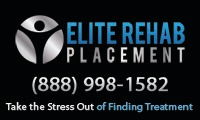Illinois Drug and Alcohol Treatment

Illinois is a known continental hub for travel and business given its location and abundance of highways, railways, and waterways. Despite all it's glory, however, the "Prairie State" is no stranger to drug and alcohol abuse. Almost 6,000 people die of alcohol and drug-related deaths in the state of Illinois each year, according to Illinois Department of Human Services.
In response to the ongoing addiction issues, the sixth-most populous state in America is also host to a number of recovery centers that are willing and ready to help you or your loved one get sober. Whether you live in the Midwest, or simply need a locale change, Illinois has substance abuse rehabilitation facilities located across the state.
Illinois Rehab Facilities: Residential & Outpatient
Millions of Americans suffer from substance abuse, and the number of alcohol- and drug-related incidents increases each year. Though public opinion still sees addiction as lifestyle decision, the reality is that it this disorder chemically modifies the brain in a way that compels the user to continue the habit. Thus, it is as epidemic that requires specific medical and psychological care.
If you are struggling with addiction, the first step is understanding the fact that you need help.
When it comes to treatment, there are two main facility types: outpatient and residential. They both have programs that take a considerable time to complete, but you get comprehensive, long-lasting, results-driven care. The National Institute on Drug Abuse (NIDA) says patients should spend at least three months to achieve full recovery.
Here's a close comparison of inpatient and outpatient facilities:
Convenient vs. Immersive
Substance abuse may take an incredible toll on your body, but it doesn’t define you. Remember that you mean a lot to somebody out there, whether it is your family, friends, etc. You are the one who determines who you want to be, and that action alone makes a significant difference in the lives of others around you. This is why residential centers focus on the whole you.
Outpatient centers use daily or nightly meetings in an effort for you maintain your normal schedules, as well as counsel you individually as best as they can to give you the most optimal outcome.
Group vs. One-to-One
Residential facilities are great for patients who need intensive care but aren't yet ready to participate in programs that involve a group setting. This type of facility places the focus on you, and you'll be able to focus on your quest to a more fulfilling, sober life.
However, outpatient programs allow you to complete your day-to-day routine uninterrupted. You will be able to maintain all of your responsibilities, like work and childcare, and still travel recovery road. These types of centers typically require approximately 10 to 12 hours of medical treatment per week. This facility type is a great option for those who aren't able to commit to living in a facility full-time.
Personal Discipline vs. 360-Degree Support
A substance detox is key to giving you the best chance at sobriety. Therefore, it is crucial to be properly monitored at all times during this process. Removing toxins from your body can be challenging and dangerous without professional assistance. At residential centers, you and your loved ones can have peace of mind knowing you're going through the toughest phase of recovery with medical professionals nearby.
Outpatient programs require you to regularly visit your hospital or other medical center for periodic physical and mental evaluation during this phase. This type of program invests time in drug abuse education and counseling, and can be a fantastic option for long-term addiction recovery management.
Illinois Mental Health Rehab Centers
Substance abuse and mental health are not mutually-exclusive. Understanding the psychology behind your decision-making is just as important as grappling with the biological causes. Thus, dual diagnosis is an invaluable tool in the greater scope of recovery. Determining whether your mental health or substance use needs the most attention isn't an easy feat, which is why dual diagnosis programs examine them both in tandem and with great consideration. Ultimately, this is, beyond a doubt, the best path to full health and long-term recovery.
According to the National Institutes of Health (NIH), patients who struggle with co-developed mental disorders have better results when they enroll dual diagnosis treatment programs.
These types of programs require you to complete treatment sessions for your mental health along with substance use. This ranges from dual diagnosis therapy to recovery groups, along with family programs, individual counseling, and other therapeutic services.
If you've been formally diagnosed with a mental health condition and are seeking treatment for substance use disorder, you'll need to make an appointment with a mental health rehab or alcohol and drug counselor to discuss your recovery goals and mental health history to determine what next step is right for you and your recovery.
Illinois Drug Rehab Centers
Drug and alcohol abuse are cut from the same cloth, however they differ in one particular way: availability. For example, you can legally purchase alcohol if you are 21 or older. It doesn't require a prescription, and this leads people to believe that it is less harmful to the body compared to prescription or hard drugs.
Understand that both can severely damage the body, and have serious long-term effects if they are used recklessly or without proper consideration.
People who use or have used drugs extensively or acutely in large amounts will benefit from a residential treatment program. This can help your body do a much needed “time out” via a detox. With these types of treatment, you'll safely detox in a controlled, medically-supervised environment and gain new coping and prevention strategies.
These newfound skills prepare you for a community-based, outpatient environment, which is helpful for those who don't require medical detoxification or round-the-clock supervision. Structure-wise, these facilities vary but in most cases you can expect group therapy sessions, individual counseling, psychotherapy and relapse prevention planning.
Illinois Alcohol Rehab Centers
According to the National Institute on Alcohol Abuse & Alcoholism (NIAA), about 17 million adults 18 and older abuse alcohol, and one in 10 children live households where drinking is a serious problem. The National Institute on Drug Abuse (NIDA) reported from 2009 to 2013 that Illinois had about 283,000 people between 12 and 20 years old (which accounts for 17.5 percent of all people in this demographic) binge on alcohol per year.
And while these stats are concerning, identifying whether you have a problem is always the first step. Ask yourself: Do you end up drinking more than your expectations on a given night? Tried to curbing your drinking habits, but have had no luck whatsoever? Have ever had cravings that were simply insurmountable? Has your drinking forced you to put off important duties? Do you find yourself compulsively drinking, despite the resulting emotional strife?
If you say yes to any of these, you may have alcohol use disorder (AUD).
Alcohol rehab facilities treat alcoholism in several ways. Detoxification the first line of treatment, as it removes all of the alcohol and other poisonous substances in your blood through carefully-monitored procedures done by certified medical professionals.
Residential treatment requires you to stay full time at a facility while in recovery. Outpatient programs, on the other hand, gives you the freedom of staying at home, and you can continue your normal routine between sessions.
Medication-Assisted Recovery
Along with treatment, you will likely have to take medications to help with cravings and withdrawals. With some scenarios, you may need meds that forcefully avert your alcohol consumption, such as:
- Acamprosate
Reduces your alcohol cravings and symptoms during withdrawal.
- Naltrexone
Meant to reduce cravings for alcohol
- Disulfiram
Contains chemicals that inflict headaches, nausea or vomiting onto the user when he/she consumes alcohol. This medication is used primarily in extreme cases where alcohol consumption is compulsive and beyond simpler methods.
Affordable Illinois Rehab Centers
Before you get started, it's important to talk with your treatment center about payment plans or other options they may have available. Some residential treatment programs are covered by insurance or by a state's consolidated fund, while others require either a partial or full out-of-pocket payment. Inquire about insurance, statewide consolidated funds, or a scholarship program for free or subsidized treatment.
Just like any treatment program, the cost of a rehab treatment will vary based on the amount of hours you're recommended to complete. Other factors include amenities, insurance funding and the type of program itself.









